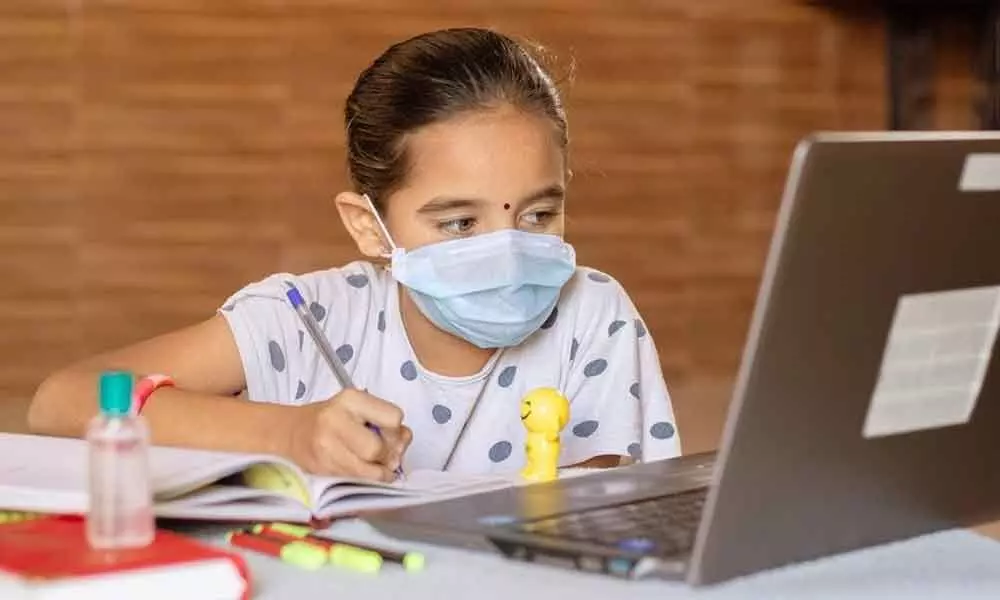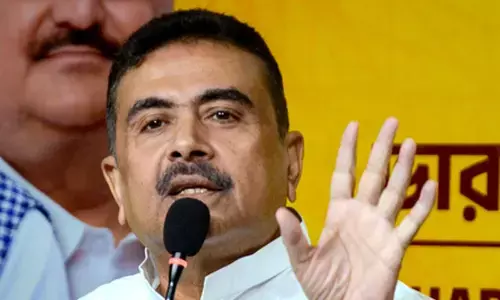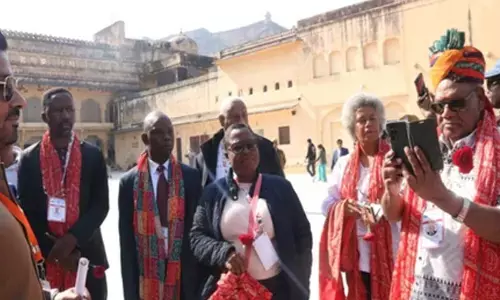'Learning loss due to school closure would've weakened knowledge of students'

(Picture used for representational purpose only)
The learning loss of more than one year due to prolonged school closure in wake of Covid-19 pandemic would necessarily have weakened the foundational knowledge of students, especially in the subjects of mathematics, sciences and languages, at school level, a Parliamentary panel has noted.
The learning loss of more than one year due to prolonged school closure in wake of Covid-19 pandemic would necessarily have weakened the foundational knowledge of students, especially in the subjects of mathematics, sciences and languages, at school level, a Parliamentary panel has noted.
The Parliamentary Standing Committee on Education, Women, Children, Youth and Sports in its report "Plans to bridge the learning gap caused due to school lockdown as well as review of online and offline instructions and exams and plans for reopening of schools" has noted that the learning loss is likely to impair cognitive capabilities of students.
"The learning loss of more than one year would necessarily have weakened the foundational knowledge of the students especially in the subjects of mathematics, sciences and languages at school level. This learning loss is a big deficit and is likely to impair the cognitive capabilities of students," the panel said in its report tabled in Parliament on Friday.
"This might have a debilitating effect on vulnerable sections of the society like poor and rural students, marginalized sections of society and young women who might have been unable to connect to any form of digital education during the pandemic. This needs to be addressed and immediate remedial steps required to be taken," the report said.
The panel stated that school closures have put children's learning, nutrition, mental health, and overall development at risk and some students, particularly girls, are at risk of never returning to school. "In fact long closure of schools will lead to children not returning to schools and potential for children getting engaged in labour and early marriage. Therefore, the immediate need is to bring children back to school," the report said.
The committee also recommended that since the digital and online mode of education is going to be the new normal even after the pandemic subsides, efforts to technologically empower every school and students across the country may be aggressively pursued and additional funds allocated for the purpose, as per requirement.
"The committee recommends that a comprehensive assessment to collect data of the post-Covid situation leading to the learning loss due to school lockdown may be under taken by the Department of School Education and Literacy to cover the areas of concern," it said. The panel headed by Vinay P Sahasrabuddhe advocated that a credible, fair and transparent system of continuous assessment throughout the year may be developed and put in place even when normal functioning of schools re-commences, so as to meet any future emergent scenarios.
"This system should be over and above the final board examinations and would aid in helping students and teachers get a correct perspective of their learning curve and course correct wherever required.
"Guidelines for internal assessment, practicals, project work, particularly for classes 10 and 12, be formulated and circulated for strict implementation in every school at the Centre and in States and UTs, be it government, government-aided or private, in order to ensure objective and uniform standard of assessment across the country," the panel report said.














